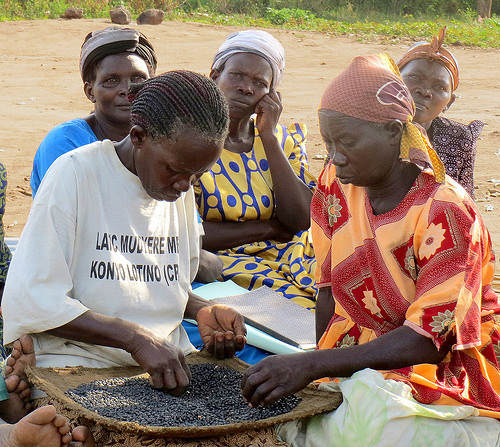“Engaging women in climate smart agriculture for Uganda”
April 3 Hunger and food insecurity are on the increase in rural Uganda, writes Munguongeyo Ivan, 24, a Correspondent from Kampala, Uganda. The most vulnerable segments of the population are women and children, especially in the Karamoja region in the North Eastern parts of Uganda.
Hunger and food insecurity are on the increase in rural Uganda, writes Munguongeyo Ivan, 24, a Correspondent from Kampala, Uganda. The most vulnerable segments of the population are women and children, especially in the Karamoja region in the North Eastern parts of Uganda.
I feel overwhelmed and disturbed about such news because the pre-colonial and post-colonial Uganda was the chief supplier of agricultural produce in the entire East African region and was regarded as the ‘food basket of the region’.
Today, agriculture is seen as the backbone of the country’s economy. The sector provides employment for about 33.8 per cent of the economically active population and the proportional contribution of the agricultural sector to the GDP of the country stands at about 20.9 per cent, according to the 2014 UBOS report.
Despite the great share of agriculture in Uganda’s GDP, the majority of the population in rural Uganda practice rain-fed agriculture and are unfortunately mired in perennial poverty and backwardness. What could have gone wrong to a sector that was and is tipped to be the leading sector in the economy? And how can we change the face of rural agriculture in Uganda? The onus is upon the policy makers in government and other development agencies to engage the women in the agricultural sector and promote a Climate Smart Agriculture (CSA). Why should the focal point be on women?
We need to engage the women because they are the most affected by the adverse effects of climate change and they are so vulnerable. They are the ones who actively participate in the agricultural sector activities ranging from planting to harvesting as the men in rural sites are busy drinking local brews. These rural women lack access to productive economic assets like land and access to credit, due to power relations and lack of collateral to access micro credits. Since land is the major ingredient for climate smart agriculture, we need to provide a platform for our mothers to access land, and have access to affordable and reliable credit. Another reason we need to focus on women is that they are mainly occupied with the provision of foods for their households.
Drastic and innovative measures are needed to help women farmers and the entire populace cope up with the capricious weather patterns of Uganda. We need to promote research and innovation through encouraging demand-driven research, value chain addition, encouraging the promotion of drought tolerant crop varieties and emphasising climate smart agricultural technologies that are appropriate, gender sensitive and locally based. Furthermore, climate change adaptation strategies must be appropriate to women’s capacities and needs, because they are the group of people most impacted by the adverse effects of climate change.
We ought to promote an agriculture that sustainably increases productivity, promotes resilience, curbs greenhouse gases and enhances achievement of national food security to rescue the vulnerable regions of the country like Karamoja, West Nile and Eastern regions of Uganda. It can provide the impetus for Uganda’s agricultural transformation, because the economic and social costs of failing to adapt will be extremely high. We need to act now to incorporate women in the promotion of Climate Smart Agriculture (CSA) in rural Uganda.
photo credit: Trust for Africa’s Orphans Farmers – beneficiaries of TAO’s projects – check seed quality, 2013 via photopin (license)
…………………………………………………………………………………………………………………
About me: I am Munguongeyo Ivan, from Kampala, Uganda. I hold a Bachelor’s Degree in Development Studies from Makerere University and currently am pursuing Master’s Degree in Rural Development at the same University. My aim is to be a lecturer in the development studies discipline. I also have wide knowledge in serving local communities and specifically working with NGOs to improve on the welfare of the rural poor. I am currently a volunteer with an NGO called Hands of Love Foundation.
…………………………………………………………………………………………………………………
Opinions expressed in this article are those of the author and do not necessarily represent the views of the Commonwealth Youth Programme. Articles are published in a spirit of dialogue, respect and understanding. If you disagree, why not submit a response?
To learn more about becoming a Commonwealth Correspondent please visit: http://www.yourcommonwealth.org/submit-articles/
…………………………………………………………………………………………………………………






